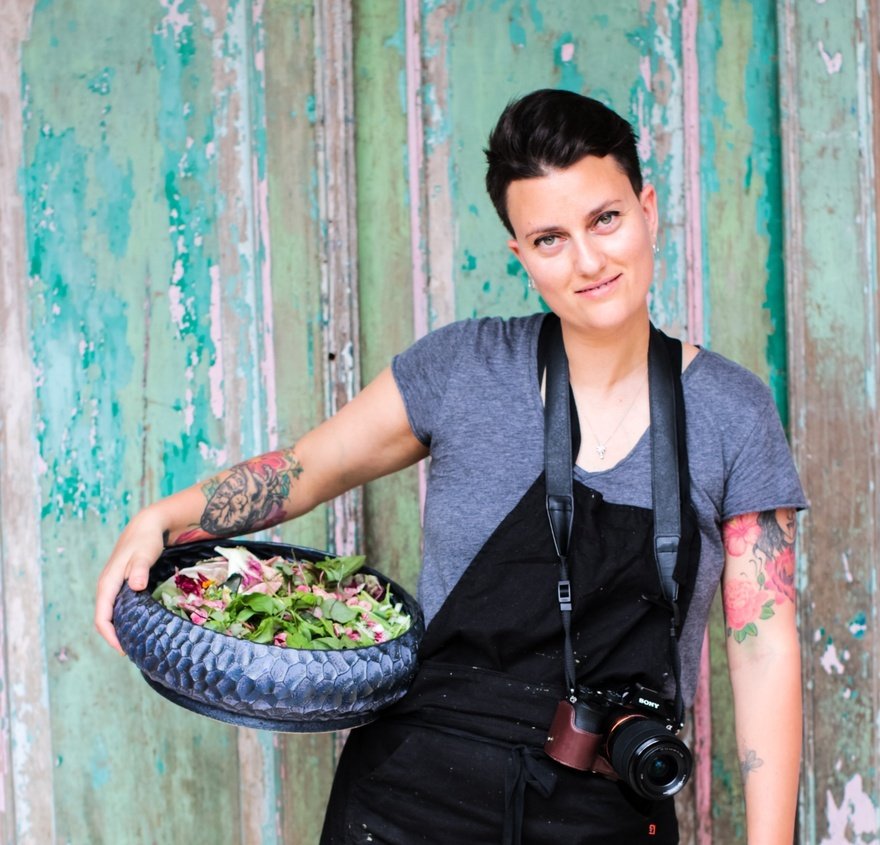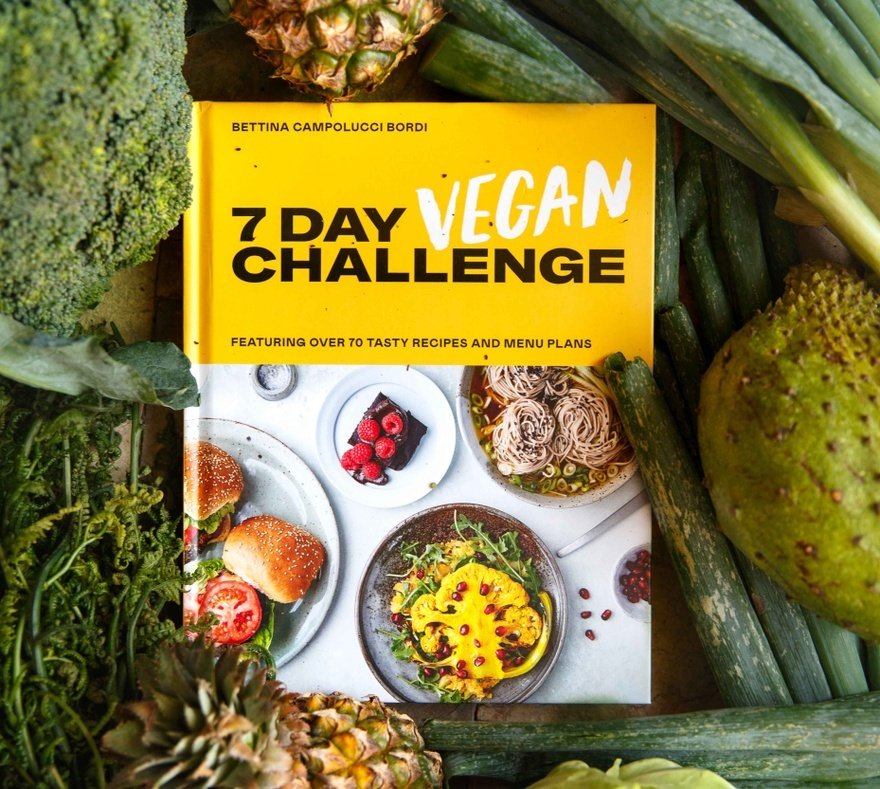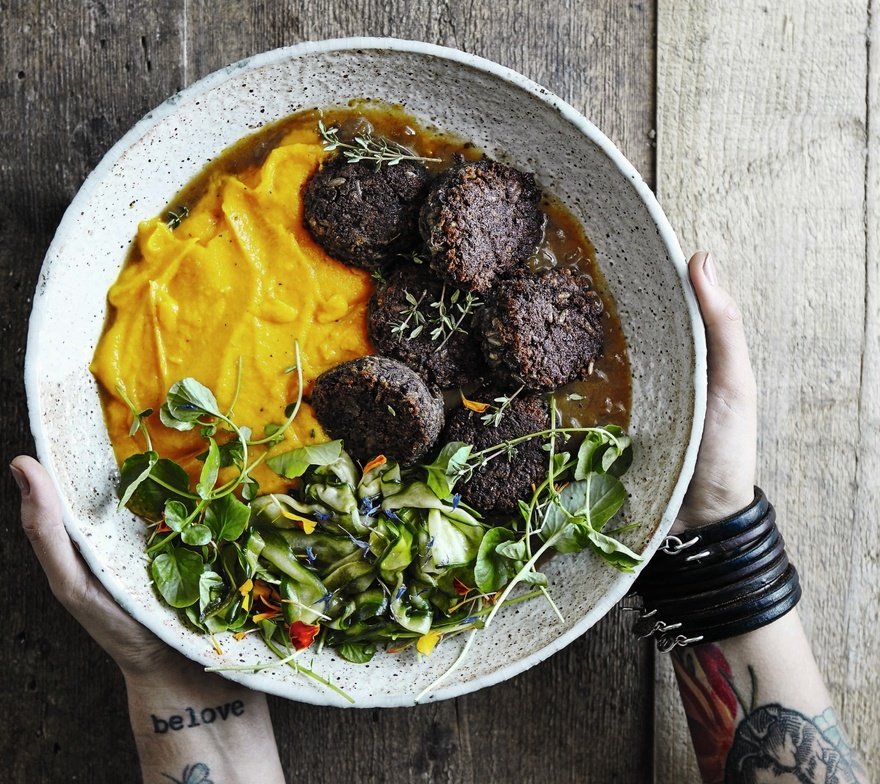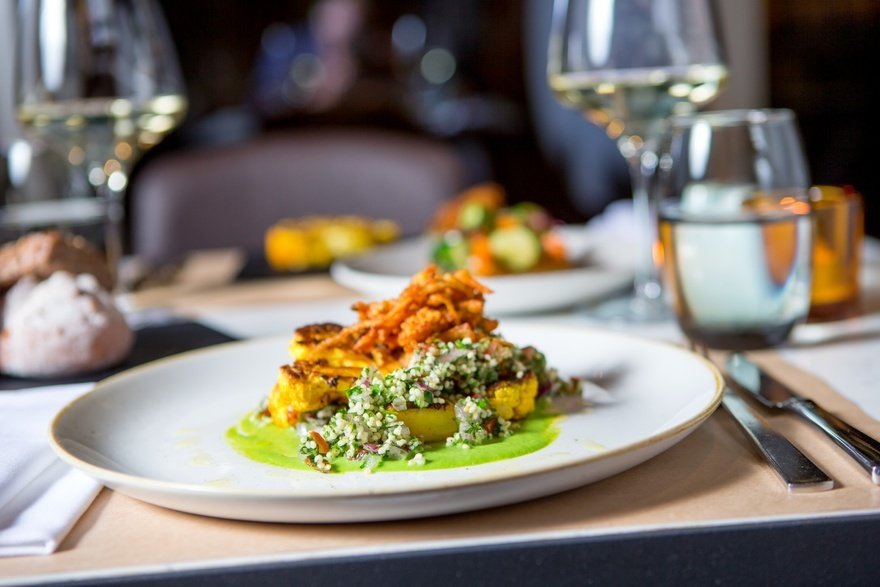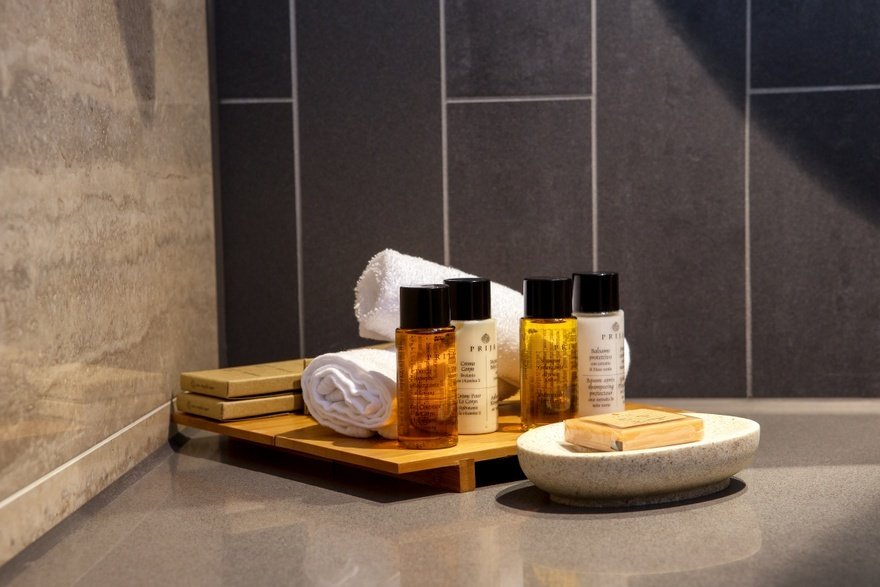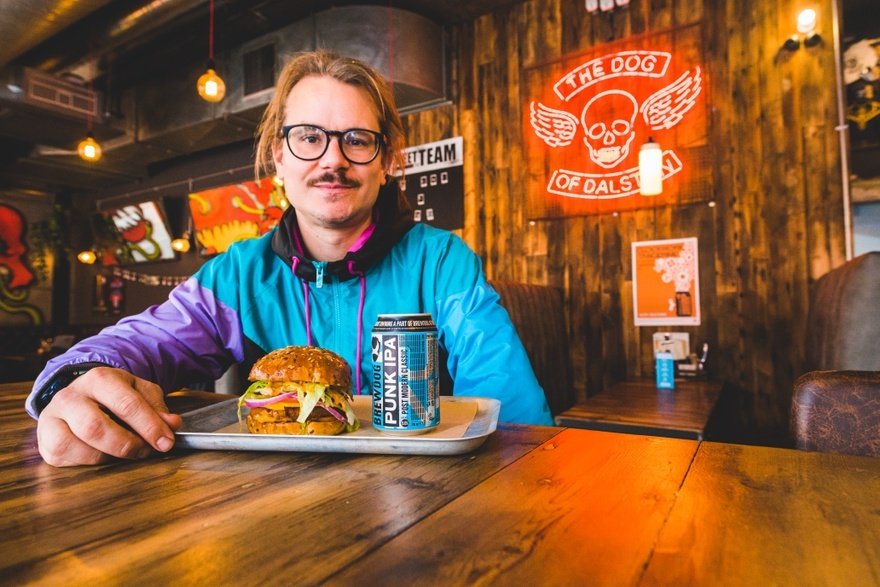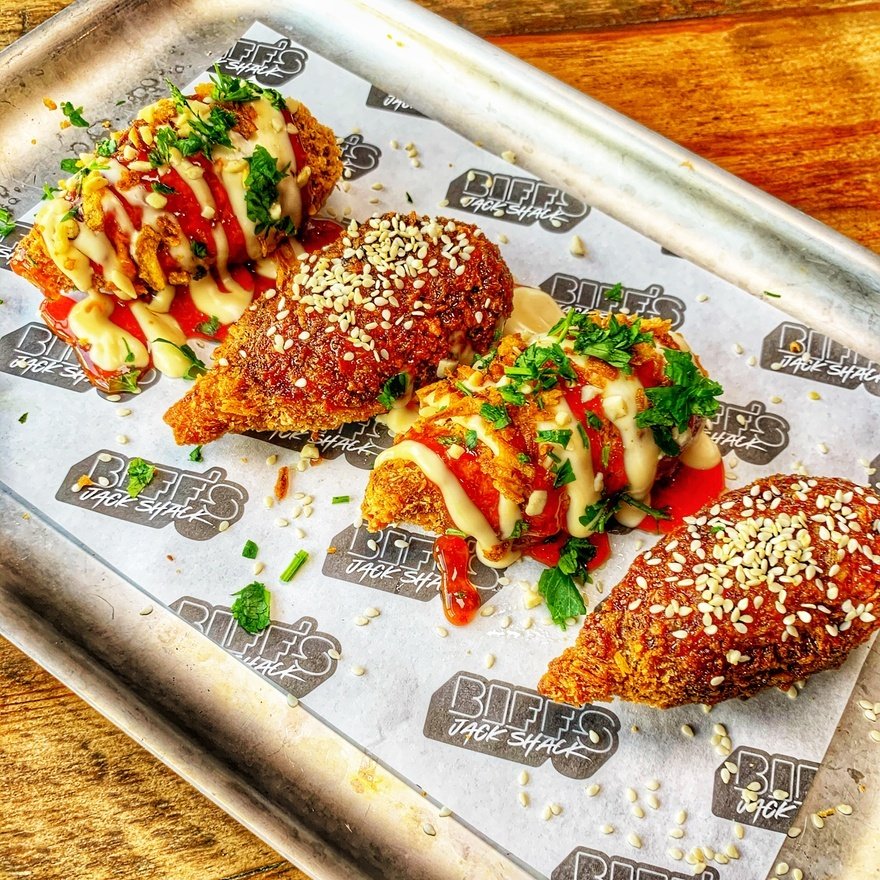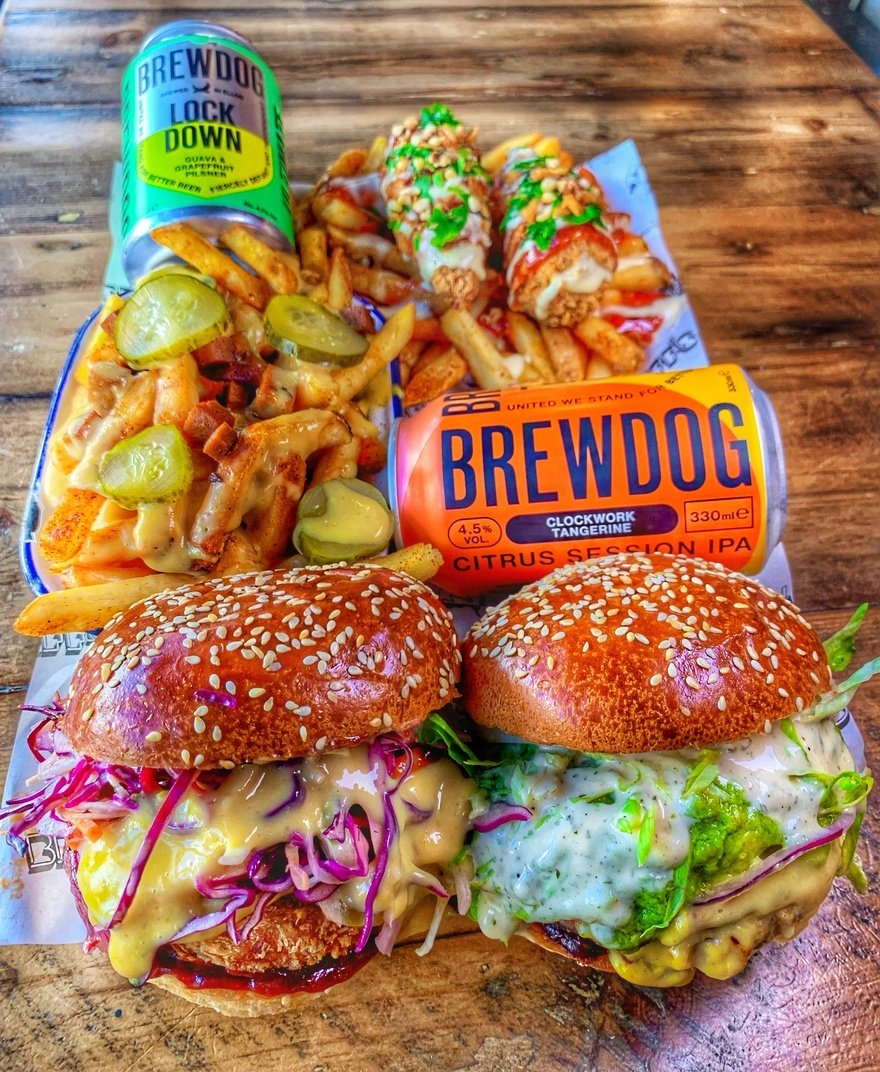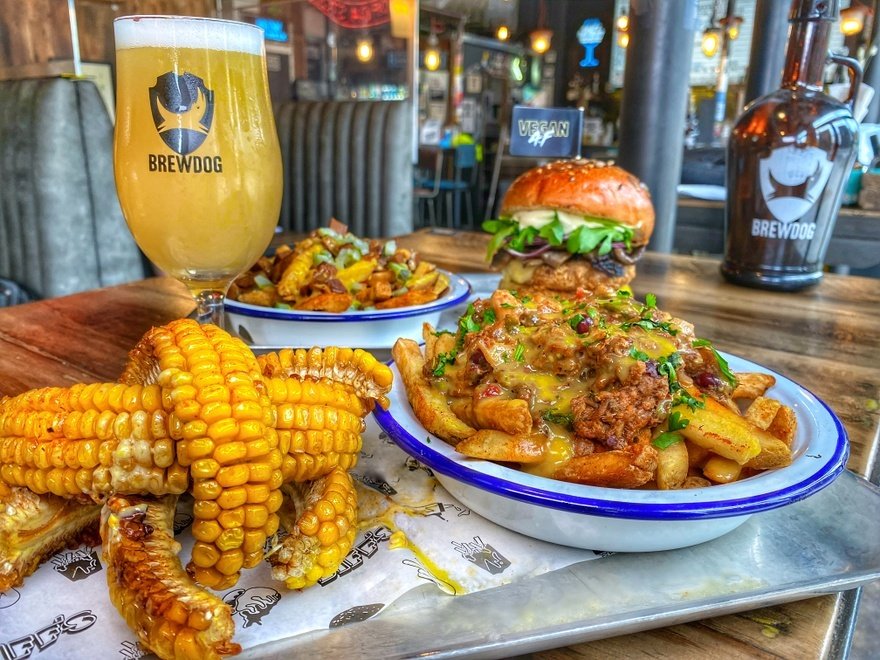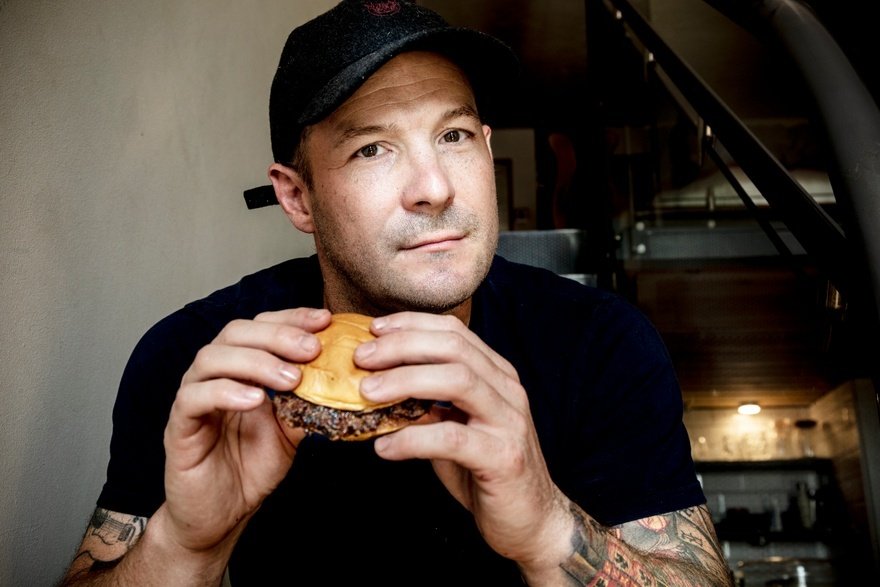It's Veganuary, so what are you doing to add vegan flavour to your establishment? Here, we ask industry experts for their advice on creating exciting plant-based food for vegan diners – and to convert their meat-loving counterparts – as well as ways to bring veganism into all areas of your business.
Another new year, another set of resolutions ready to be thrown by the wayside. And with lockdown 3.0 bringing a whole new meaning to the term ‘January blues', no one would raise an eyebrow if the only 2021 goal anyone managed to achieve this year would be to be kinder to themselves.
And in recent years, many consumers have been turning to veganism to do exactly that – be kind to both their bodies and the planet that they inhabit.
This year's Veganuary campaign has hit a record 500,000 sign-ups – the biggest since it began in 2014 – demonstrating that veganism goes beyond a short-lived trend and that consumers are clearly curious.
Pledging to be vegan for the whole of January provides an opportunity to test out this new lifestyle, with 77% of those who manage the full 31 days saying they would be extremely likely to try it again in the future. But where exactly is the opportunity for operators to capitalise on this increasing interest in plant-based eating? The Caterer asks the big questions.
Bettina Campolucci Bordi, founder, Bettina's Kitchen: Where do I start with a plant-based menu?
Bettina Campolucci Bordi, founder of Bettina's Kitchen, is a social media expert known for her plant-based recipes.
The self-taught chef has published two cookbooks, Happy Food and 7 Day Vegan Challenge, both offering a range of vibrant and accessible plant-based recipes, such as breakfast burritos, kimchi fried rice and key lime pie.
She has spent time living in Tanzania, Sweden, Ireland, Spain and the UK, which gives her recipes an international flavour, but above all Campolucci Bordi focuses on sustainability.
Consuming a predominantly plant- based diet herself, she is a passionate advocate of plant foods and the goodness they can bring to your diet and wellbeing.
When it comes to the foodservice industry, Campolucci Bordi has helped many industry chefs to reassess their cooking strategy and plant-based dishes. Through her wellness retreats and chef academies, she teaches the basic principles of incorporating plants and seasonality into menus.
When it comes to ‘how to do vegan', the chef first explains that she'd much rather the subject was referred to as plant-based eating, rather than veganism.
"Veganism is a lifestyle, whereas plant-based cookery and dining is a category. I believe most people who follow a plant-based diet do it from an environmental perspective. Plant-based cooking is a genre that is here to stay – it's not a lifestyle choice."
So, what advice would she give for incorporating plant-based food into menus?
"When I visit a chef for a recipe consultancy, I always start by looking at what they already have and creating plant-based dishes from existing restaurant ingredients. Then you can look at adding things like vegan cheeses and start experimenting with different techniques, such as fermentation and culturing.
"Chefs tend to over-complicate what a plant-based menu should look like; it's just about using the best ingredients you can afford and practicing those new techniques. Simply roasting vegetables gives them a different texture and sweetness.
"For a classically trained chef who is taught to focus on the protein, it's about turning this learning on its head."
When it comes to the cost and pricing of plant-based dishes, she insists this is carefully thought through. "I'm always amazed when I see a cauliflower steak as a main course priced the same as a meat steak!
"It's a complete fabrication that a plant-based menu is more expensive than a traditional meat-based menu. It's a fraction of the price of using animal products.
It's a complete fabrication that a plant-based menu is more expensive than a traditional meat-based menu
"Plant-based dishes should be integrated into the main menu and should be approximately half the price of meat dishes. But my top tip is that your cauliflower steak, for example, is the same size as your meat steak. So, think about the portion size of plant-based dishes."
The chef says the main principals of a healthy plant-based diet should incorporate whole foods, fruit, vegetables, nuts, seeds, grains and pulses. "Start with the basics. Seasonal veg box schemes are a great starting point as they force you to be more adventurous with what you are given."
Hebe Richardson, freelance nutrition consultant, Hebe Valiant Nutrition: How does veganism tie into health and wellbeing?
One of the questions Hebe Richardson is asked every January is how to eat well on a vegan diet. She is wary of the large amount of nutritional misinformation around the topic, so urges some caution.
"Veganism has become increasingly popular, with Veganuary hitting bigger numbers than ever. However, there is an assumption that due to its high-plant density a vegan diet is healthier than any other dietary pattern. This is not always the case, and just because something is vegan, doesn't automatically mean it's healthier."
"Vegan diets centre around plant foods such as beans, nuts, seeds, fruits, vegetables and wholegrains, and they can provide a wide selection of nutrients that are important for our wellbeing. Some research has indicated that diets higher in plant-based foods can be beneficial to our metabolic health, including reduced risk of diabetes and reductions in blood pressure."
Richardson recommends considering three questions when looking at how veganism can tie into health and wellbeing.
1 Use your marketing strategies for good
"Going vegan for the first time can be challenging for many. It is quite restrictive, something they might not enjoy and can be difficult to do without guidance and support from a nutrition professional.
"In January particularly there is an overwhelming amount of information about vegan diets. Consider consulting a nutritionist to help design the nutritional content that runs alongside any vegan campaign you choose to follow. Giving people the tools, resources and evidence-based information about veganism in an accessible, practical and knowledgeable manner is an important aspect of support wellbeing."
2 Incorporate vegan dishes into your menu
"Vegan dishes on menus are becoming more commonplace. Well-planned vegan diets can be nutritious, healthy and delicious, but eliminating food groups can make some nutrients more difficult to get hold of. More attention is needed when planning these menus to know what to include and where they can be found within a vegan diet. A key starting point is to consider including as much variety as you can."
3 Spread plants throughout the menu
"People choose to reduce meat in their diets for a variety of reasons. Interest in reducing meat has been growing year-on-year, with factors such as health, animal welfare, food safety and the environment all cited as reasons for reducing meat intake. Incorporating a more plant-based approach to all types of recipes can help support individual's health and wellbeing without having to add the vegan label."
James Clarke, general manager, Hilton London Bankside: What can hotels do to go vegan?
Hilton London Bankside launched the "world's first vegan suite" in January 2019, where every touchpoint, from the toiletries and menu to the cleaning products and linen, is vegan. In its first 12 months the suite exceeded its occupancy target and scored an average customer satisfaction rate of 94%. General manager James Clarke says the key was authenticity.
"I take it very seriously because it's a lifestyle choice. It's not a fad, it's here to stay, and I honestly believe that we in the hospitality industry have to take it very seriously," he says. "I thought, ‘if we're going to do this, we have to do it right'."
It's not a fad, it's here to stay, and I honestly believe that we in the hospitality industry have to take it very seriously
The 292-bedroom hotel, winner of last year's Hotel of the Year – Group Catey, consulted with design agency Bompass & Parr and the Vegan Society, the latter of which educated Clarke and his team on veganism as a lifestyle. However, Clarke emphasises that, to make the concept work, everyone – from owner Splendid Hospitality and brand partner Hilton to the staff – had to fully buy into it. It was the staff, after all, that would be selling it to guests.
"As the leader you have to give the vision and the purpose around doing it, and more importantly create the belief. Once you nail that down and everybody buys into that, then everything else will come," he says.
Employees are therefore able to put their own personality stamp on service, while ensuring that it is "an experience that is second to none".
Piñatex, a faux leather made from pineapple fibres, is used throughout the room, but it was a lengthy process to ensure the material met health and safety regulations and could meet the demands of a £549 per night high-end bedroom.
Some operators may baulk at spending 12 months of planning and research for one suite, but Clarke confidently declares it was "absolutely worth it".
"The demand is there," he insists. "Even during lockdown I had enquiries from essential workers looking to get into the vegan suite."
Every detail and aspect of service had to be considered, and that includes checking in vegan guests at a desk almost entirely free of any animal products (the glue in the computers is perhaps the only sticking point) and providing a key card in a red Piñatex wallet so restaurant staff know to seat guests in the venue's vegan chairs and to offer them the right menu.
Three members of staff have been trained and designated to clean the suite with cleaning products that have not been tested on animals, and, of course, all the mini-bar items and toiletries are vegan. Featherdown pillows have been replaced with a variety of options, including buckwheat, kapok, millet and foam.
Although Clarke admits it was a "considerable investment", it has paid for itself already and he is an enthusiastic advocate for thinking beyond food when it comes to veganism. So much so that, pre-Covid, he was hoping to launch another vegan suite, and still hopes to do so once the market reopens.
Christa Bloom-Burrows, co-founder and marketing director of Biff's Jack Shack: How can operators incorporate vegan options on a meat-based menu?
Biff's Jack Shack started out after long-time vegan Christa Bloom-Burrows convinced her husband Biff, a former McDonald's manager, to switch to a fully plant-based diet.
The pair began trading on the London street food circuit in 2017, serving vegan comfort food such as crispy fried jackfruit burgers and ‘wingz' in a bid to offer an alternative to the "sad bean burgers" seen on many vegan menus.
Word of mouth and a strong social media following helped them move into foodservice in 2018 when they were approached by BrewDog and offered the chance to take over the kitchen at its bar in London's Dalston. This opened as the first fully vegan BrewDog in 2019, and Biff's burgers are now on the menu at its bars across the country.
The company has also launched a nationwide delivery brand out of BrewDog kitchens, and works with other operators including Punch Pubs and Thunderbird Fried Chicken.
Despite Biff's founders both turning vegan for ethical reasons, they thought it was key to partner with non-vegan brands.
"We are an ethical business and genuinely believe in veganism, but the more people you can feed, the more power you have to change people's minds," says Christa. "Our food is our activism. We see the collaboration as a positive. If you only work with vegan brands you are limiting yourself and your audience."
Biff's menu is designed to easily slot into existing menus and kitchen operations, removing the concern that vegan dishes may be more complex to produce. The team also creates sauces, such as vegan bacon jam and chipotle hot sauce.
Christa says there are major benefits for non-vegan operators to introduce a plant-based menu, including allowing them to access a wider, and often higher-spending, customer base.
"The demographic of people that are making plant-based choices in their diet tends to be younger millennials and Gen Z, who want to go out more often and spend money.
"We're getting feedback from people stocking our products that the vegan burgers are now selling as strongly as meat burgers in some restaurants.
"Particularly mid-week I think people are looking to try something different. Maybe one day they'll have a vegan burger and the next day a meat one, and as a business you can offer both."
The shift towards plant-based eating means there is more competition than ever among restaurants to offer quality vegan options.
"Up until a few years ago I had to order chips and a side salad if I wanted to eat out in a lot of good places," says Christa. "I'd look at dishes and see minor things they could change to make it vegan or vegetarian. Things have changed a lot, and the street food scene across the country was a big part of building that buzz."
Up until a few years ago I had to order chips and a side salad if I wanted to eat out in a lot of good places
When it comes to keeping menus interesting to vegans and flexitarians alike, Biff's likes to get creative. Its chicken wingz contain a fake bone made of sugar cane, and the team tries to keep vegetables visible on the menu.
"Everyone's got a vegan option now, so how will you make your vegan option stand out?" Christa says. "Our personal ethos has been about creativity and being a bit different. We don't want a hyper-realistic bleeding burger, but something fun and experiential.
"We do corn ribs, which are made of deep-fried corn that curls up and is covered in a vegan paprika butter. Visually it's super-exciting. It's really easy to get hung up on the vegan aspect of it, but the key thing is to make those dishes as tantalising and different as possible."
Christa predicts the demand for plant-based eating will only increase: "The pandemic means thinking about the environment and health is top of people's minds. Veganism is not a trend, it's becoming much more integrated as a category."
Neil Rankin, chef-founder, Temper restaurants and Simplicity Burger: How will my business benefit from veganism?
Neil Rankin shares a flexitarian attitude to eating less meat with many of the vegan-curious. After setting up Temper, his chain of steakhouse and barbecue restaurants, he turned his hand to creating high-quality plant-based burgers after becoming frustrated with meat's impact on the environment.
Simplicity Burger was born, with a restaurant in London's Brick Lane and contracts with the likes of Dishoom to supply burger patties and sausages. Rankin says it is a "labour-intensive, handmade product" made using "clever cookery techniques" rather than chemicals.
Despite the success of his new plant-based venture, Rankin says he still enjoys eating meat, but now puts more thought into what he consumes, mixing up his diet with more plant-based products rather than skipping animal products all together.
And he is not alone. "Consumers' attitude to veganism has changed massively – especially during lockdown," he says. "The percentage of people looking for an alternative to meat once or twice a week is huge."
He says some of the big burger restaurants in London are seeing 25% of their sales from vegan items, while at his own restaurant his patrons typically tend to be 50% vegan, 50% flexitarian.
"Ignoring it as a meat-centric retailer in this market seems to be silly," he says. "People feel they are eating too much meat and they also go out with their vegan friends, so you need vegan options. You also have people with allergies, who can't eat cheese, or have health problems, or they're on a diet – you need alternatives. It seems crazy to me to be anti-plant-based produce."
One thing Rankin insists on when it comes to plant-based alternatives is that the plant products are treated well to create a tasty, but healthy meat alternative – he doesn't understand the point of vegan burgers that are as bad for you as the meat varieties.
"For most people it's about cutting down and trying to find a balance and make sure that what you've got is sustainable. When it comes to the vegan food movement, a lot is unhealthy. Most fast-food meat venues seem to be healthier than the fast-food vegan places."
In the kitchens, those who include more plant-based items onto their menu can also feel good about reducing waste. "Working with [plant-based food] in a restaurant is really nice as you don't have to worry about storage so much as you do with dairy and meat. The utilisation of waste is much easier and it's all edible.
"With meat, the biggest problem we have is making use of the whole animal and its shelf life. Any meat I buy, I often chuck away quite a lot of bone and offal, and I have to use the whole thing in order for it to make financial sense, whereas there is consistency with vegetables."
He advises businesses not to be on one side of the vegan fence or the other. "It shouldn't be that tribalistic – it should be something that everyone evolves within their business. A few retailers have ignored online businesses and Deliveroo to the point that they will regret it. If you ignore plant-based you will be left behind – just look at Greggs' vegan sausage roll and how that changed the market. People who are not looking at the extra opportunities are missing out."
If you ignore plant-based you will be left behind
Feature photo: Shutterstock
Continue reading
You need to be a premium member to view this. Subscribe from just 99p per week.
Already subscribed? Log In


